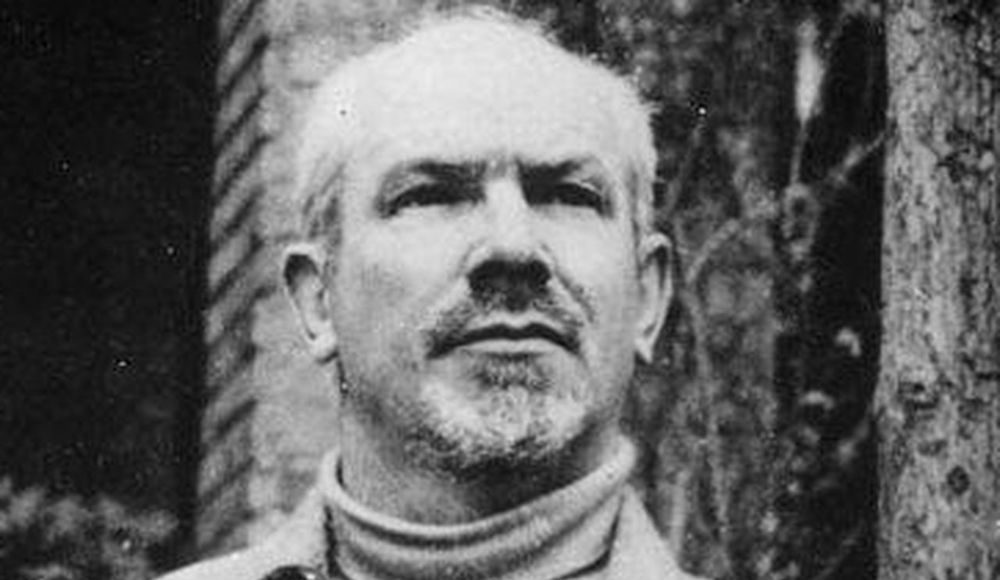More languages
More actions
No edit summary |
mNo edit summary Tag: Visual edit |
||
| (One intermediate revision by the same user not shown) | |||
| Line 1: | Line 1: | ||
{{External article cleanup|date=November 2021}} | {{External article cleanup|date=November 2021}}{{Infobox revolutionary|name=Norman Bethune|native_name=白求恩|image_size=200|birth_date=March 4, 1890|birth_place=Gravenhurst, [[Ontario]], [[Canada]]|death_date=November 12, 1939|death_place=Tang County, Hebei, [[Republic of China]]|death_cause=Blood poisoning|nationality=Canadian|political_party=[[Communist Party of Canada]]|image=Norman Bethune.png}} | ||
Bethune | '''Henry Norman Bethune''' (March 4, 1890 – November 12, 1939) was a [[Canadian]] thoracic surgeon, early advocate of [[Universal healthcare|socialized medicine]], and member of the [[Communist Party of Canada]]. A veteran of the [[First World War]], he held [[militarism]] and [[capitalism]] to be inextricably linked.<ref>{{Web citation|author=Norman Bethune|newspaper=The Marxist-Leninist|title=Wounds|date=2009-02-14|url=https://marxistleninist.wordpress.com/2009/02/14/norman-bethune-wounds/|archive-url=https://web.archive.org/web/20220120045700/https://marxistleninist.wordpress.com/2009/02/14/norman-bethune-wounds/|archive-date=2022-01-20|retrieved=2023-02-05}}</ref> | ||
Bethune | Bethune came to international prominence first for his service as a frontline trauma surgeon supporting the [[Second Spanish Republic|Republican government]] during the [[Spanish Civil War]], and later supporting the [[Communist Party of China]]'s (CPC) [[Eighth Route Army]] during the [[Second Sino-Japanese War]]. Bethune helped bring modern medicine to rural China, treating both sick villagers and wounded soldiers.<ref>[http://www.bookrags.com/biography/henry-norman-bethune/#gsc.tab=0 ''Encyclopedia of World Biography'' on Henry Norman Bethune]</ref> | ||
Bethune's service to the CPC earned him the respect of [[Mao Zedong]], who wrote a | Bethune was responsible for developing a mobile blood-transfusion service for frontline operations in the [[Spanish Civil War]]. Ironically, he died of blood poisoning after accidentally cutting his finger while operating on wounded Chinese soldiers. | ||
Bethune's service to the CPC earned him the respect of [[Mao Zedong]], who wrote a eulogy dedicated to Bethune when he died in 1939. He is honored in the [[People's Republic of China]] to this day, and the highest medical honour in China is named after him.<ref>{{Web citation|newspaper=[[People's Voice]]|title=Norman Bethune: forgotten in Canada but more relevant than ever|date=2020-11-12|url=https://pvonline.ca/2020/11/12/norman-bethune-forgotten-in-canada-but-more-relevant-than-ever/|archive-url=https://web.archive.org/web/20220926214802/https://pvonline.ca/2020/11/12/norman-bethune-forgotten-in-canada-but-more-relevant-than-ever/|archive-date=2022-09-26|retrieved=2023-02-05}}</ref> | |||
== References == | == References == | ||
| Line 12: | Line 13: | ||
[[Category:Communists]] | [[Category:Communists]] | ||
[[Category:Members of the Communist Party of Canada]] | [[Category:Members of the Communist Party of Canada]] | ||
<references /> | |||
[[Category:Anti-fascists]] | |||
Latest revision as of 17:28, 5 February 2023
 | Some parts of this article were copied from external sources and may contain errors or lack of appropriate formatting. You can help improve this article by editing it and cleaning it up. (November 2021) |
Norman Bethune 白求恩 | |
|---|---|
 | |
| Born | March 4, 1890 Gravenhurst, Ontario, Canada |
| Died | November 12, 1939 Tang County, Hebei, Republic of China |
| Cause of death | Blood poisoning |
| Nationality | Canadian |
| Political party | Communist Party of Canada |
Henry Norman Bethune (March 4, 1890 – November 12, 1939) was a Canadian thoracic surgeon, early advocate of socialized medicine, and member of the Communist Party of Canada. A veteran of the First World War, he held militarism and capitalism to be inextricably linked.[1]
Bethune came to international prominence first for his service as a frontline trauma surgeon supporting the Republican government during the Spanish Civil War, and later supporting the Communist Party of China's (CPC) Eighth Route Army during the Second Sino-Japanese War. Bethune helped bring modern medicine to rural China, treating both sick villagers and wounded soldiers.[2]
Bethune was responsible for developing a mobile blood-transfusion service for frontline operations in the Spanish Civil War. Ironically, he died of blood poisoning after accidentally cutting his finger while operating on wounded Chinese soldiers.
Bethune's service to the CPC earned him the respect of Mao Zedong, who wrote a eulogy dedicated to Bethune when he died in 1939. He is honored in the People's Republic of China to this day, and the highest medical honour in China is named after him.[3]
References[edit | edit source]
- ↑ Norman Bethune (2009-02-14). "Wounds" The Marxist-Leninist. Archived from the original on 2022-01-20. Retrieved 2023-02-05.
- ↑ Encyclopedia of World Biography on Henry Norman Bethune
- ↑ "Norman Bethune: forgotten in Canada but more relevant than ever" (2020-11-12). People's Voice. Archived from the original on 2022-09-26. Retrieved 2023-02-05.
